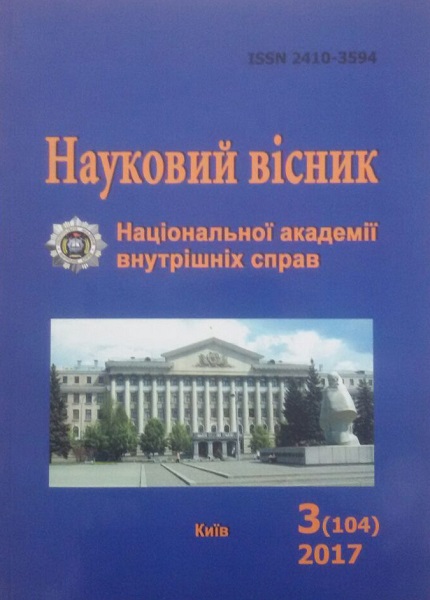Question Concerning Institute of Secret Investigative (Search) Actions and Possible Directions for their Solutions
Abstract
The modern criminal procedural and operatively-search
legislation and results of the last scientific researches are analyzed.
The range of problematic issues of using the results of secret
investigative (search) actions in criminal proceedings is determined.
The main directions of their solution are determined in the context of
the current situation in Ukraine.
Practical implementation of the provisions of the Code of Criminal
Procedure (CCP) of Ukraine helped to identify a number of problems
in the application of the Code of Standards by investigators and
operational units. This directly relates to the newly created institution of
unsolicited investigative (investigative) actions, which is problematic,
which determines the relevance of the chosen to research direction.
There are significant problems in this area: the lack of a clear
distinction between operatively-search and secret investigative
(search) actions, which makes it difficult for the personnel to
understand the importance of procedural correct documentation of
unsolicited investigative (investigative) actions; imperfection of the
protocol form of fixing their results; insufficient legal regulation and
practical shortcomings in the interaction of investigative, operational
units and the prosecutor’s office in the course of consolidating the
results of secret investigative (search) actions.
Downloads
Abstract views: 65 PDF Downloads: 69
- Authors reserve the right to authorship of their own work and transfer to the magazine the right of the first publication of this work under the terms of the Creative Commons Attribution License, which allows other persons to freely distribute published work with mandatory reference to authors of the original work and the first publication of an article in this magazine.
- Authors have the right to enter into separate additional agreements on non-exclusive dissemination of the work in the form in which it was published in the journal (for example, to post an article in the institution's repository or to publish as part of a monograph), provided that the link to the first publication of the work in this journal is maintained.
- The journal's policy allows and encourages the posting of articles by authors on the Internet (for example, in electronic storehouses of institutions or on personal websites), both before the submission of this manuscript to the editorial office and during its editorial processing, as this contributes to the creation of a productive scientific discussion and positively affects the efficiency and dynamics of citing the published work.




